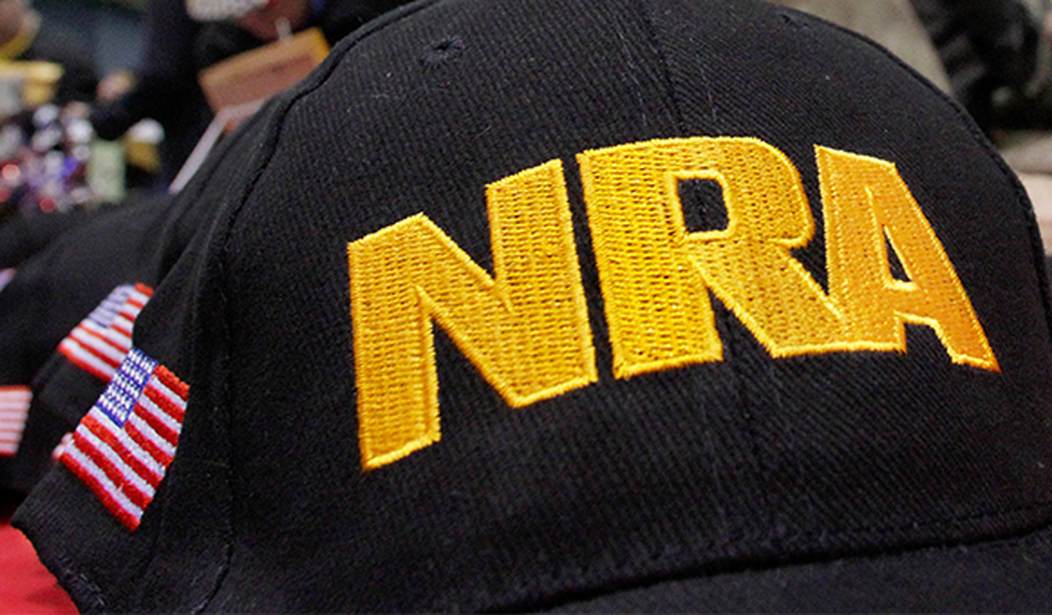It’s not every day the National Rifle Association and the American Civil Liberties Union can celebrate a shared victory.
With the recent unanimous decision from the U.S. Supreme Court in National Rifle Association v Vullo—penned by Justice Sonya Sotomayor—Americans of every political stripe have cause to celebrate the vindication of one of our most cherished constitutional liberties.
Free speech was on the docket, where the ACLU represented the NRA in a First Amendment challenge to a heavy-handed scheme spearheaded by former New York Department of Financial Services superintendent Maria Vullo.
In short, Vullo and her colleagues (including then-Governor Andrew Cuomo) engaged in a public campaign to expel the NRA and other firearms advocacy groups from her state. Rather than utilizing direct censorship tools, however, Vullo bullied insurance providers and other financial institutions into cutting ties with the disfavored groups.
Indirect though the tactics may have been, the effect on fundamental freedoms remained the same. As Justice Sotomayor wrote, “a government official cannot directly or indirectly coerce a private party to punish or suppress disfavored speech on her behalf.”
Writing further, the Obama appointee added that “the First Amendment prohibits government officials from wielding their power selectively to punish or suppress speech, directly or (as alleged here) through private intermediaries.”
Exactly.
When the government hides behind third parties to pick winners and losers on matters of public concern, we all lose—regardless of party affiliation. That’s what brought the ACLU and the NRA together to push back against this clearly unconstitutional weaponization of the financial marketplace.
Concerns about a politicized financial marketplace are shared across the political aisle. This February, U.S. Senators Elizabeth Warren and Bernie Sanders and Reps. Ilhan Omar, Rashida Tlaib, and Ayanna Pressley sent letters to the heads of the nation’s four largest banks, calling upon corporate leaders to protect Muslim Americans from the threat of viewpoint discrimination in financial services.
Recommended
A month later, I testified before the U.S. House of Representatives Select Subcommittee on the Weaponization of the Federal Government. Headed by Rep. Jim Jordan, the committee had just revealed that my employer, Alliance Defending Freedom, was caught up in a federal government-initiated dragnet coordinated with major banks like Bank of America to flag everyday Americans as potential domestic violent extremists based on their political and religious activities—including purchases of religious texts.
The sharp increase in government attempts to co-opt private industry to censor on their behalf is deeply un-American censorship and should concern everyone. Thankfully, the Supreme Court’s Vullo ruling allows the NRA case to move forward, which will hopefully result in a ruling on the merits that New York’s action violated the First Amendment. The High Court is also poised to weigh in on another case of indirect government censorship—this one by the Biden administration in Murthy v. State of Missouri.
In Murthy, the states of Missouri and Louisiana, along with a number of private parties, are suing the Biden administration for coercing major social media companies to censor dissenting voices on a wide range of hot-button cultural issues, including climate change, abortion, economic policy, gender identity, and COVID-19 policy.
This ongoing collusion between Big Government, Big Banks, and Big Tech is what lifelong Democrat Michael Shellenberger has aptly dubbed the “Censorship Industrial Complex.” Your protection from direct government censorship is cold comfort if, like the NRA, the government could coerce private companies to cut you off from essential financial and business services because of your views.
The NRA ruling is a welcome stepping stone on the path toward reining in government abuse of concentrated private power in the financial markets. Hopefully the Court will follow a similar approach in the forthcoming Murthy decision and similarly curtail the government’s ability to censor Americans through tech and social media platforms.
Jeremy Tedesco is senior counsel and senior vice president of Corporate Engagement for Alliance Defending Freedom (@ADFLegal).
























Join the conversation as a VIP Member